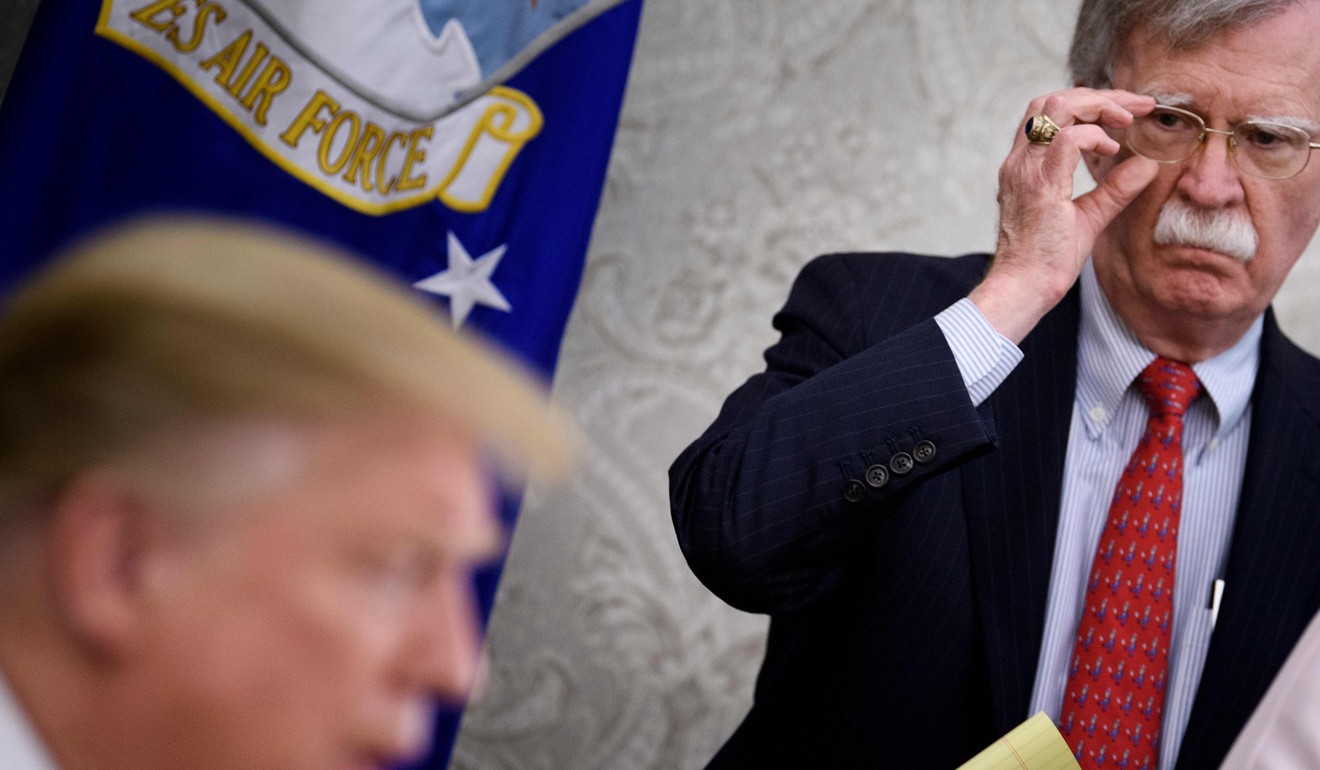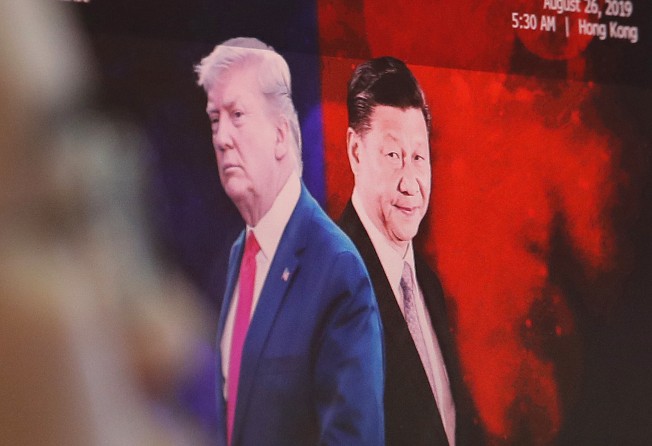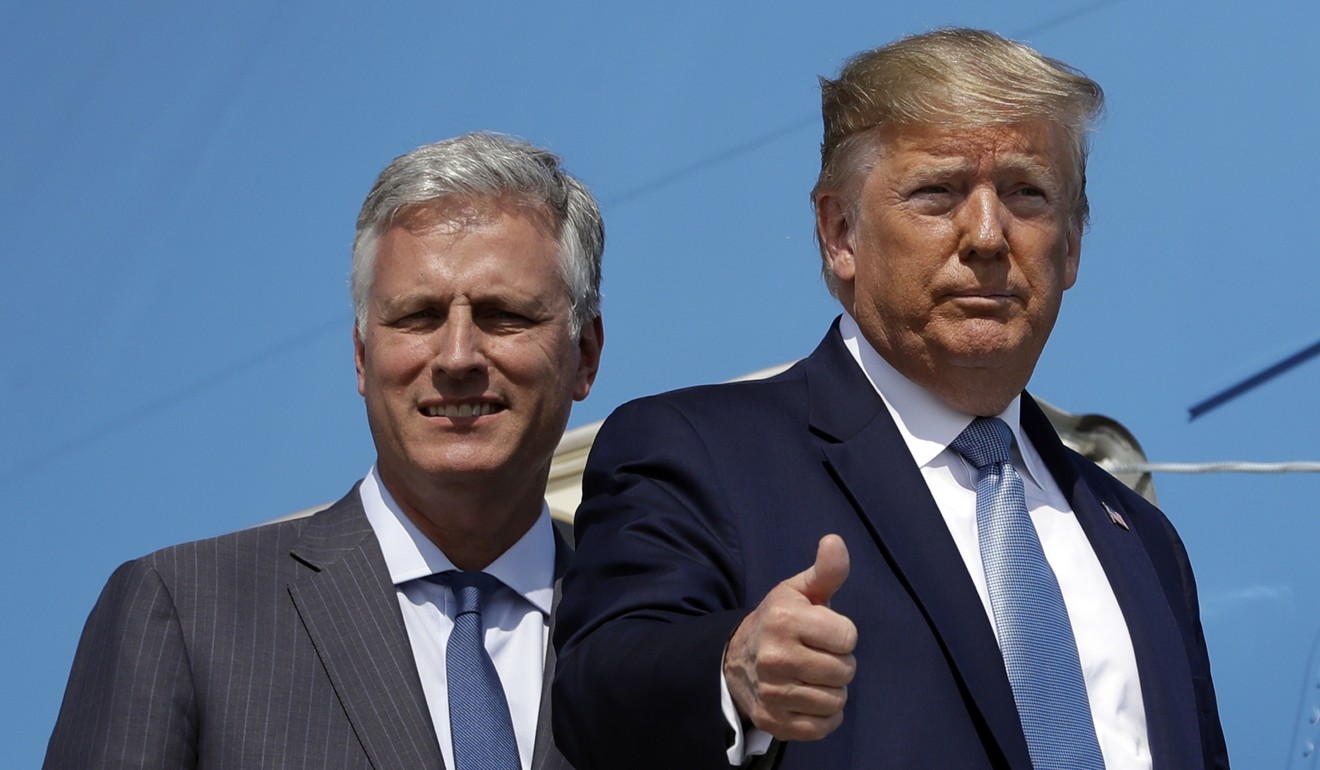
US-China relations set for more of the same under Donald Trump’s new security adviser
- Robert O’Brien is not a well-known name in foreign policy circles and when it comes to Beijing, his role is likely to be marginal, Ankit Panda writes
- John Bolton may have gone but there are still plenty of China hawks whispering in the president’s ear

John Bolton is out as US President Donald Trump’s third national security adviser. The remarkable turnover in that position is unprecedented, with Trump now the first leader ever to see four different people in the role during a first term.
Bolton came to the Trump administration as an experienced bureaucratic operator with strongly held views. While the latter didn’t particularly distinguish him within the administration, it was the former that made him particularly effective at manoeuvring within an administration comprised of many executive branch novices.
In the lead-up to Bolton’s departure, the signs of a fissure between him and the president had become clear, with the adviser getting ahead of himself on Venezuela, Iran, North Korea and even Afghanistan. Trump had taken note of his hawkish views, joking in July apparently that Bolton’s solution to even non-military problems was to “nuke them all”.

Bolton’s sacking, done over Twitter, followed Trump’s remarkable admission that he was planning to meet Taliban representatives on US soil to finalise a potential agreement. Bolton had criticised the idea, favouring an open-ended US presence in Afghanistan.
While Bolton’s departure is likely to lead to a noticeable change in the administration’s approach to negotiations with American adversaries – from Iran to North Korea to the Taliban – there is one area where it is unlikely to have any appreciable effect: China policy.
Yes, like on so many things, Bolton was hawkish on China, but here, he found himself closer in policy preference to the president and many of his other top staff than on other issues. Bolton may be gone, but plenty of hawkish advisers remain in place, whispering in Trump’s ear. Trump, too, has hardened in his anti-China views in 2019.

Bolton’s successor is Robert O’Brien, the US envoy for overseas hostage affairs and not a well-known foreign policy name. His past views and writings on China have stuck to a traditionally hawkish Republican view of the relationship, but he won’t come to the White House with the same ideological streak that Bolton carried. He might be expected to put loyalty to Trump above anything else, his influence may be marginal on the administration’s approach toward Beijing.
Bolton had a reputation for fiercely supporting Taiwan and in 2017 wrote an op-ed calling on the United States to entirely rethink its one-China policy. “Let’s see how an increasingly belligerent China responds,” he said at the time.
Bolton’s tenure did coincide with the announcement of major US arms sales to Taiwan, including the approval in August of a landmark sale of F-16 fighters valued at an estimated US$8 billion. But his departure will leave in place several officials who remain committed to the special unofficial US relationship with Taiwan.
Bolton’s term also coincided with greater US inter-agency cooperation on dissuading US allies and partners from adopting China-made telecommunications equipment, primarily from Huawei. His successor is likely to sustain this thread given its prominence in the administration’s multipronged approach to China.
O’Brien may have an opportunity to shape the US-China relationship in one important way as he steps into the national security adviser role. One possible area for a modest shift in the tone of those relations might be to have more frequent meetings with his Chinese counterpart, the State Councillor and director of the Central Foreign Affairs Commission Office, Yang Jiechi.
But even here, the possibility for any improvement in US-China ties would appear low. With the US about to enter an election year, Trump and his advisers will be more animated by electoral survival than any particular policy concerns related to China.
The administration’s hawkish bent and competitive attitude towards Beijing is here to stay. John Bolton’s departure won’t change that.
Ankit Panda is a senior editor at The Diplomat